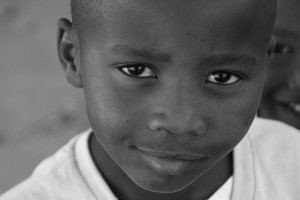Today I felt like telling a story. This story has waited a long time to be told, almost 20 years to be honest.
It’s shaped who I am as an educator and stays close to my heart even now.
The day started as most Tuesdays started for me at the time. I woke up early, caught the bus, and arrived at Charles Dickens Elementary, an inner city school in Vancouver, to do my weekly volunteer work. I was learning how to be a teacher and I needed volunteer experience in a classroom to gain entry into SFU’s very competitive PDP program.
 I loved Charles Dickens Elementary. The old brick school was demolished a few years ago and was rebuilt to modern standards. If I could, however, teleport that old brick school with those teachers through space and time, I would work there forever and make sure my children went there too. The school was led by a nationally recognized, award-winning principal and the librarian had been my grade three teacher. She was kind enough to bring me in, introduce me around and arrange the volunteering schedule for me. But that’s another story to tell.
I loved Charles Dickens Elementary. The old brick school was demolished a few years ago and was rebuilt to modern standards. If I could, however, teleport that old brick school with those teachers through space and time, I would work there forever and make sure my children went there too. The school was led by a nationally recognized, award-winning principal and the librarian had been my grade three teacher. She was kind enough to bring me in, introduce me around and arrange the volunteering schedule for me. But that’s another story to tell.
Back to the Tuesday morning. This particular morning I was to spend time in the grade 2/3 classroom. As I arrived I noticed that Blaire (not his real name), the teacher, was busy speaking with a family I hadn’t seen before. The family, I soon learned, were refugees to Canada who had recently arrived from a war-torn country in Africa. This was their second day in Vancouver, the first day for their children to attend school.
Soon after the day started, Blaire asked me to work with the little refugee boy registered into grade three. To this day I cannot remember his name but I can picture his face like I saw him yesterday. He was fairly tall for a boy of that age, stocky and strong. His skin was a rich, dark brown and his eyes looked sad and overwhelmed, yet curious. He had thick, curly, springy-looking hair. 
I immediately asked Blaire what he wanted me to do as I had not been in this situation before. Blaire told me to see if I could figure out anything about the boy, if he could read, talk, draw, count, etc. so, with that broad, yet helpful, direction, I asked the little boy, with both words and gestures, to accompany me to a circular table at the back of the classroom.
I soon figured out the boy could not speak any English. He would point to himself and say his name when I pointed to myself and said my name. He couldn’t read English, couldn’t count from what I could tell, didn’t seem too interested in books and didn’t draw when I put paper and pencil in front of him. As it was math time for the rest of the class, I soon pulled out some math manipulatives, cards, dice, counters, etc., and decided to teach him to play a math game.
I knew a few different dice games and spent the next twenty minutes trying, and failing, to teach him a math game using the dice. I kept reminding myself that this was his first day in school in Canada and that I needed to show patience and kindness. It was extremely frustrating to me and seemed futile. He didn’t seem to understand anything I was doing but still sat there looking at me and trying, sort of, to play along, even though I could tell he had no idea what I was doing. I wonder now what he thought that day – what he thought about me, what he thought about what I was doing, what he thought about his first day at school.
I admit that after twenty minutes I was discouraged and a part of me gave up. I stopped trying to teach him and instead just rolled the dice around with him.
In was then that I learned my lesson.
After about five minutes of rolling dice around, I noticed a change in his behaviour. I’d noticed earlier that he did a certain movement with the dice and some counters, but I had misinterpreted that as him not understanding the game I had been trying to teach him. He did that certain movement again, and this time I also noticed that his body posture had changed and he looked right at me. He seemed to have a purpose, to be trying to show me something.
I stopped trying to be a teacher and started being a student.
The boy was trying, had been trying for quite some time I realized after reflecting on the whole thing, to teach me a game using dice and counters. It didn’t take long for me to begin to understand what he was trying to teach me. After that, he, being a great teacher, taught me how to play a very simple game, something young children would play, I’m guessing, in his home country in Africa. There were no words, no shared language between us, but suddenly, after nearly an hour together, we were having fun and playing together. At one point I was rewarded with a huge smile that reached all the way to his eyes – I’ve never forgotten that.
Even though we couldn’t talk to each other, he somehow managed to teach me a game. With no words, he managed to teach me. Just think about that from a teaching point of view for a minute. But, and this is the important part, he wasn’t able to teach me until I stopped trying to teach him. As soon as I stopped, as soon as I paid attention to him, he taught me.
Sometimes you have to stop teaching to learn the lesson.
I’ve never forgotten that little guy and that lesson that day. It speaks to me and my teaching philosophy still. Children have so much to teach us, if only they have the chance. If we stop trying to get through that lesson, or finish the unit before the end of the month, if we stop all of that and just pay attention to our brilliant students, they do, I believe, have a lot to teach us.
Imagery: Portrait “Untitled” by Michiel Van Balen from Flickr.com, photo of the old Charles Dickens school taken by Rom@nce and accessed from http://www.panoramio.com/photo/9961621 July 25, 2012.
